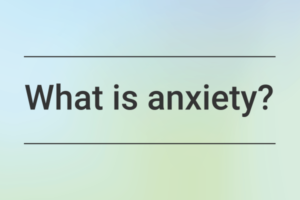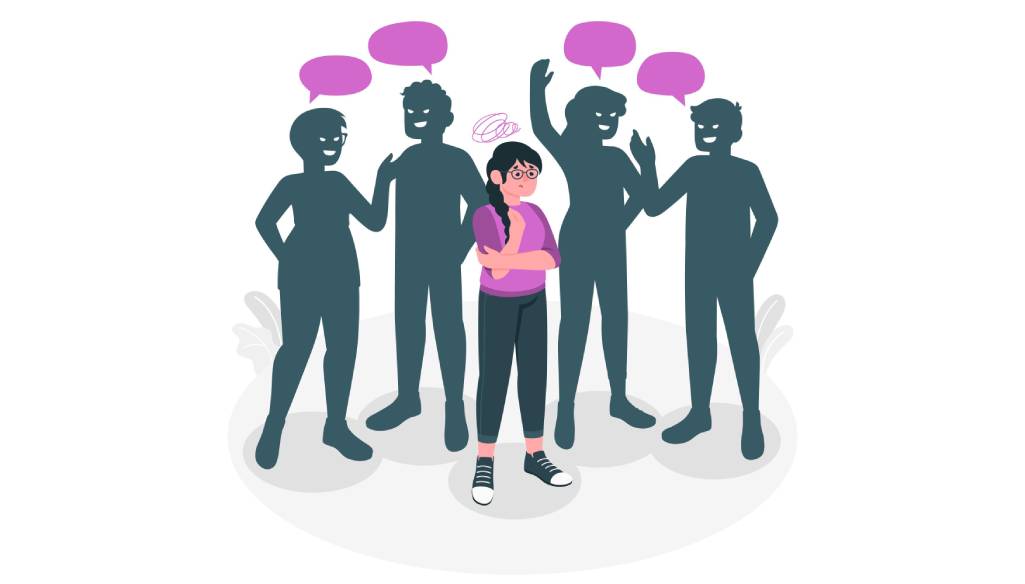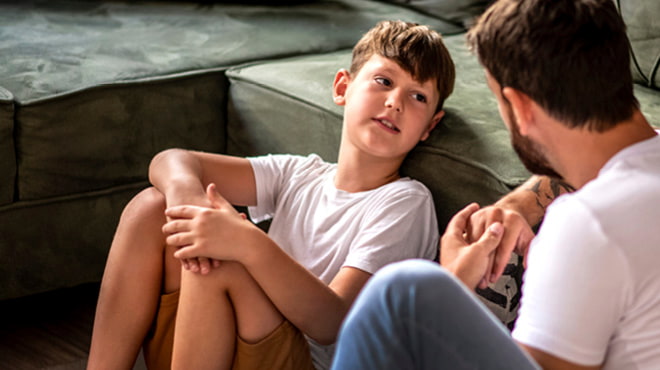Anxiety is a normal emotion that everyone experiences at some point in their lives. For teenagers, anxiety can be especially prevalent due to the many changes and challenges that come with adolescence. Parents need to be aware of the signs and symptoms of teen anxiety, as well as the best ways to support their children during this difficult time. In this blog post, we will discuss what parents need to know about teenage anxiety.
Contents
What Is Anxiety?
 Anxiety is a normal emotion that we all feel at various points in our lives. It’s what we feel when we’re worried or nervous about something. For most people, anxiety is a passing feeling that goes away quickly. But for some people, anxiety can be more constant and even overwhelming.
Anxiety is a normal emotion that we all feel at various points in our lives. It’s what we feel when we’re worried or nervous about something. For most people, anxiety is a passing feeling that goes away quickly. But for some people, anxiety can be more constant and even overwhelming.
Anxiety disorders are the most common mental health condition in the United States, affecting 40 million adults each year. And according to the National Institute of Mental Health, about 25% of teenagers will experience an anxiety disorder at some point during their adolescence.
People with anxiety are often fixated on a particular worry or fear. For example, they may constantly worry about their grades, fitting in with their peers, or making friends. This can lead to avoidance behaviors, such as skipping school or not wanting to go to social events.
Anxiety can also cause physical symptoms like a racing heart, sweating, dizziness, and trouble sleeping. These physical symptoms can make it hard to concentrate and be successful in school. In severe cases, anxiety can even cause panic attacks.
What Is Anxiety In Teens?
 Anxiety in teens is more common than you may think. In fact, according to the National Institute of Mental Health, anxiety disorders are the most common mental illness in the United States, affecting 40 million adults aged 18 and older.
Anxiety in teens is more common than you may think. In fact, according to the National Institute of Mental Health, anxiety disorders are the most common mental illness in the United States, affecting 40 million adults aged 18 and older.
Anxiety disorders are also common among children and adolescents. The National Institute of Mental Health reports that 25 percent of 13- to 18-year-olds have an anxiety disorder.
According to reports, anxiety disorders are on the rise in children and teens. The reasons for this increase are not fully understood, but there are some theories.
One theory is that increased anxiety could be due to changes in the way we live. For example, we live in a more uncertain world than ever before. The economy is unstable, terrorism is a real threat, and many families are struggling just to get by. This can all lead to increased anxiety in children and teens.
Signs of Anxiety In Teens

In teens, anxiety can manifest itself in many different ways. Some common symptoms of anxiety in teens include:
Irritability or Crankiness
One of the most common signs of anxiety in teens is irritability. If your teen seems unusually cranky or on edge, it may be a sign that they are struggling with anxiety. Sometimes sudden outbursts of anger can also be a sign of anxiety. This irritability also often manifests itself as a short temper.
Avoidance of Activities or Places
Another common symptom of anxiety in teens is avoidance. If your teen starts avoiding activities or places that they used to enjoy, it may be a sign that they are struggling with anxiety. For example, if your teen used to love going to school but now refuses to go, it may be a sign of anxiety.
Sleeping Problems
Anxiety can also cause sleeping problems in teens. If your teen is having trouble falling asleep or staying asleep, it may be a sign that they are struggling with anxiety. Anxiety can also cause nightmares and night terrors. These sleeping problems can lead to fatigue, which can make it even harder for your teen to cope with anxiety.
Excessive Worry
Another common symptom of anxiety in teens is excessive worry. If your teen seems to be constantly worrying about things that they have no control over, it may be a sign that they are struggling with anxiety. Sometimes worry also manifests itself as Obsessive Compulsive Disorder (OCD). This is when a person has intrusive, unwanted thoughts (obsessions) that cause them to do certain things over and over again (compulsions) in an attempt to make the thoughts go away.
Avoidance
Another common symptom of anxiety in teens is avoidance. If your teen starts avoiding activities or situations that make them anxious, it may be a sign that they are struggling with anxiety. For example, if your teen used to enjoy going to school but now refuses to go, it may be a sign of anxiety.
Changes in Sleep Patterns
One of the most common signs of anxiety in teens is changes in sleep patterns. If your teen is having trouble sleeping or is sleeping more than usual, it may be a sign of anxiety.
Fatigue
Another common symptom of anxiety in teens is fatigue. If your teen seems unusually tired, it may be a sign that they are struggling with anxiety.
Changes In Appetite
One of the most common signs of anxiety in teens is changes in appetite. If your teen starts eating more or less than usual, it may be a sign that they are struggling with anxiety.
Physical Symptoms
Anxiety can also cause physical symptoms in teens. These can include:
Headaches
Anxiety can cause tension headaches. These are usually dull, constant headaches that are not caused by a physical problem.
Stomach Problems
Anxiety can also cause stomach problems, such as nausea, vomiting, diarrhea, and constipation. This is because anxiety can lead to increased production of the stress hormone cortisol, which can disrupt the digestive process.
Muscle Tension
Anxiety can also cause muscle tension. This is why people with anxiety often have tightness in their shoulders or neck. This muscle tension can also lead to pain or cramping.
Rapid Heartbeat
Anxiety can also cause a rapid heartbeat (tachycardia). This is because anxiety increases the production of adrenaline, which speeds up the heart rate.
Sweating
Anxiety can also cause sweating. This is because anxiety activates the sympathetic nervous system, which triggers the sweat glands.
Shortness of Breath
Anxiety can also cause shortness of breath (dyspnea). This is because anxiety increases the production of adrenaline, which constricts the airways.
Dizziness or Lightheadedness
Anxiety can also cause dizziness or lightheadedness. This is because anxiety decreases blood flow to the brain, which can lead to dizziness or lightheadedness.
Why Does Anxiety Occur In Teens?

There can be many reasons why your teen is experiencing anxiety. It might be due to genetics, brain chemistry, or even life experiences. As a teenager, your child is going through many changes both physically and emotionally. These changes can be overwhelming and trigger anxiety.
Some of these causes of anxiety in teens are:
Stressful Life Events
One of the most common causes of anxiety in teens is stress. Teens go through a lot of changes and they are often under a lot of pressure. They might be worried about school, their future, or even their relationships. Any type of change or uncertainty can cause stress and anxiety. These stressful events are also often accompanied by a change in routine, which can make anxiety worse.
Genetics
Anxiety can also be caused by genetics. If you or someone in your family has anxiety, your teen is more likely to experience anxiety as well. This is because anxiety can be passed down through families (genetic predisposition).
Brain Chemistry
Another possible cause of anxiety in teens is brain chemistry. This refers to the way the brain functions and how it produces certain chemicals. One example of this is serotonin. Serotonin is a chemical that helps regulate mood and emotions. When the levels of serotonin are low, it can lead to anxiety.
Trauma
Anxiety can also be caused by trauma. If your teen has experienced a traumatic event, such as abuse, neglect, or witnessing violence, it can lead to anxiety. This is because the brain becomes hyper-vigilant after trauma and is always on the lookout for danger. This can make your teen feel anxious all the time.
Abuse
Teens who have been abused, either physically or emotionally, are also more likely to experience anxiety. This is because abuse can lead to trauma and cause the brain to become hyper-vigilant. This abuse can be of many forms such as verbal, physical, sexual, or emotional.
Neglect
Sometimes, even if there is no overt abuse, neglect can be a cause of anxiety in teens. This is because neglect can lead to feelings of abandonment and insecurity. If your teen feels like they are not being cared for or loved, it can lead to anxiety.
Does Anxiety In Teens Impact Someone?

Anxiety in teens can have a significant impact on their day-to-day lives. It can interfere with school, extracurricular activities, and friendships. If left untreated, anxiety can lead to more serious problems such as depression or substance abuse.
Some of these impacts are:
Impacts School Life
One of the most common impacts of anxiety in teens is that it can interfere with school. It can make it hard to concentrate, pay attention, and retain information. This can lead to lower grades and may cause some teens to avoid going to school altogether.
Impacts Extracurricular Activities
Anxiety can also impact a teen’s ability to participate in extracurricular activities. They may be too afraid to try new things or put themselves in situations where they feel like they might fail. This can limit their opportunities to explore new interests and make friends.
Impacts Friendships
Anxiety can also affect a teen’s friendships. They may be withdrawn and shy, which can make it difficult to connect with others. They may also avoid social situations altogether, which can make it hard to maintain friendships.
Impacts Work Life
Anxiety can also interfere with a teen’s ability to work. They may have difficulty completing tasks, meeting deadlines, or dealing with customers or clients. This can lead to problems at work and may even cause some teens to lose their job.
Impacts on Mental Health
Anxiety can also lead to more serious mental health problems such as depression or substance abuse. If left untreated, anxiety can make it difficult for a teen to function in their everyday life. Sometimes, anxiety can even be life-threatening.
How To Treat Anxiety In Teens?

If you are a parent of a teen with anxiety, it is important to seek help from a mental health professional. There are many effective treatments for anxiety that can help your teen live a happy and healthy life.
Some common treatments for anxiety in teens include:
Cognitive Behavioral Therapy
Cognitive behavioral therapy (CBT) is a type of therapy that helps people learn to manage their thoughts, feelings, and behaviors. CBT can be an effective treatment for anxiety in teens. It teaches them how to identify and change negative thinking patterns and develop healthy coping skills.
Medication
Several types of medication can be used to treat anxiety in teens. These medications are also effective in treating other mental health conditions, such as depression.
Yoga
Yoga is a type of exercise that can help to reduce stress and improve mental well-being. Also, Yoga can be an effective treatment for anxiety in teens. It teaches them how to focus on their breath and develop positive thinking patterns.
Parental Support
Parental support is essential for helping teens with anxiety. Parents can provide support by listening to their teen’s concerns, helping them to identify healthy coping skills, and providing encouragement. Parental support can make a big difference in the life of a teen with anxiety.
Exercises
Anxiety can be reduced by participating in regular exercise. Exercise releases endorphins, which have mood-boosting effects. Exercise can also help to reduce stress and improve sleep quality.
There are many effective treatments for anxiety in teens. If you are a parent of a teen with anxiety, it is important to seek help from a mental health professional.
How Do Parents Help For Anxiety In Teens?

If you are a parent of a teen with anxiety, there are some things you can do to help.
Encourage Them To Seek Help
If your teen is struggling with anxiety, it is important to encourage them to seek help. This can be in the form of therapy, medication, or both. It is also important to provide support and understanding. Let them know that you are there for them and that you want to help them get through this.
Help Them Understand Their Anxiety
It is also helpful to educate your teen about their anxiety. Help them understand what it is and how it affects them. This can be done by reading books or articles together, watching videos, or talking to their doctor.
Encourage Them To Be Proactive
There are also things your teen can do to help themselves. Encourage them to be proactive in managing their anxiety. This can include things like relaxation techniques, exercise, and journaling. It is also important to encourage them to stick with their treatment plan and not give up.
Give Them Some Space
It is also important to give your teen some space. This doesn’t mean you should stop being supportive. It just means that you shouldn’t hover or try to control everything they do. They need to learn how to cope with their anxiety on their own and this can only be done if they have some room to breathe.
Help Them Find Their Support System
Another way you can help your teen is by helping them find their support system. This can include family, friends, a therapist, or a support group. They need to have people they can rely on and who understand what they are going through.
Make Sure They Get Enough Sleep
It is also important to make sure your teen is getting enough sleep. Anxiety can cause insomnia, so it is important to make sure they are getting enough rest. This can be done by creating a bedtime routine, limiting screen time before bed, and making sure their bedroom is dark and quiet.
Encourage Them To Eat Healthily
Anxiety can also impact a person’s appetite. Some people may lose their appetite while others may overeat. It is important to encourage your teen to eat healthily and not use food as a way to cope with their anxiety. This means eating regular meals, avoiding sugary and fatty foods, and staying hydrated.
Try Not To Worry
It is also important for you, as a parent, to try not to worry. This can be difficult, but it is important to remember that your teen is capable of handling their anxiety. They may not always seem like it, but they are strong and they will get through this. Just be there for them and offer your support.
These are just some of the things you can do to help your teen with anxiety. It is important to remember that every teen is different and what works for one may not work for another.
Conclusion
Anxiety is a normal emotion that everyone experiences at one point or another. However, when anxiety becomes severe and starts to interfere with daily life, it may be time to seek professional help. If you are the parent of a teen who is struggling with anxiety, there are a few things you can do to help.
If you feel like your teen’s anxiety is severe and negatively impacting their life, don’t hesitate to reach out to a mental health professional for help. With the right support, your child can learn how to manage their anxiety and live a happy and fulfilling life.
Hope this article was of help to you! If you are suffering from anxiety, you may seek help from Therapy Mantra. We have a team of highly trained and experienced therapists who can provide you with the tools and skills necessary for overcoming anxiety. Contact us today to schedule an online therapy or download our free Android or iOS app for more information.


